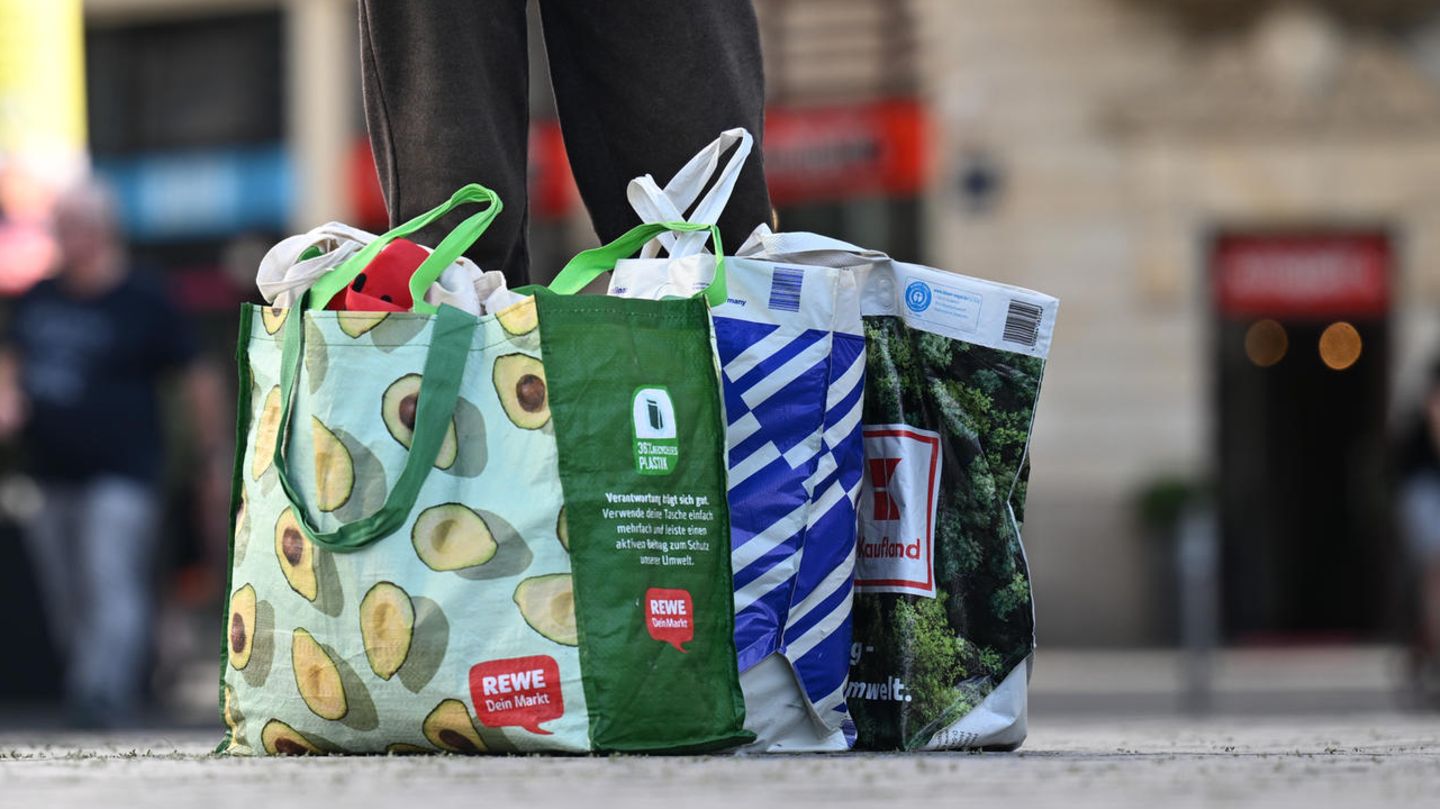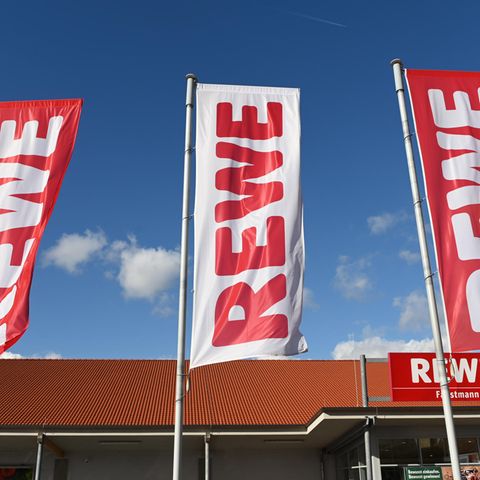New report
Aldi, Lidl and Co.: How sustainable are the discounters really?
Copy the current link
Rewe, Aldi and Co. advertise local and environmentally friendly products and own brands. But do the discounters keep what they promise? A report provides answers.
The food industry is one of the most environmentally harmful in the world: 40 percent of the world’s land and 70 percent of the fresh water available worldwide are used to produce food, according to the . Agriculture and forestry of global CO2 emissions – transport, processing, storage, preparation and losses not taken into account.
If you want to do something good for yourself and the planet, buy regional – or even better – organic products from organic and unpackaged shops. However, the goods there are often expensive. Inflation has made the situation even worse than it was three years ago.
To eat or not? The ten most controversial foods in the world
The avocado has been conquering kitchens and buffets for years. It has valuable nutrients such as vitamins E and K and monounsaturated oils. However, in the growing countries of Mexico, Israel and South Africa, the cultivation of the fruit leads to environmental problems – the avocado plantations require more and more space. Read more about this here. If you don’t want to miss out on avocado at brunch, you should at least make sure to buy fair trade avocados.
© Getty Images
Back
Further
For many people, a sustainable lifestyle is not a question of desire, but of budget. If you can’t afford the prices charged by organic farmers, buy at a discounter. But they can hardly keep up with the environmental friendliness of organic markets, shows one (Uba).
Sustainability is discussed by the food industry – but hardly implemented
To do this, the authority surveyed the sustainability strategies of Germany’s eight top-selling food manufacturers. Result: Aldi, Lidl, Kaufland, Rewe, Penny, Netto and Edeka appear to be greener and more environmentally friendly than they actually are. Strategically, climate protection is a top priority for most companies, but it is hardly put into practice, according to the Uba report.
The stores therefore pay the most attention to the Supply chains ensure that environmental standards are adhered to. This is probably due to what has been in effect in Germany since the beginning of 2024. The role models are the supermarkets Lidl and Kaufland – Rewe and Aldi Nord are at the bottom.
The standards at the locationsi.e. in the individual branches, are consistently poor. Sustainability strategies are discussed at management levels, but are hardly implemented in the markets themselves. Lidl and Aldi Süd are doing comparatively well, Edeka and Netto are negative examples here.
In terms of sustainability consumption The results are also mixed to poor: Uba praises the fact that all companies are involved in environmental campaigns. It remains unclear to what extent these influence customers’ purchasing decisions. In some branches, organic products are prominently displayed, but otherwise there are no incentives. Overall, however, none of the companies surveyed could demonstrate a sales strategy to encourage consumers to buy more environmentally friendly products. Aldi Süd, Lidl and Rewe are at the top in this category. At Penny and Netto, however, sustainable consumption plays almost no role.
The authority also rates the handling of social responsibility towards employees in the branches or in the supply chains as well as the animal welfare measures as inadequate. Although some companies have distinguished themselves through “proactive commitment”, “the industry is still a long way from an effective transformation towards animal welfare-friendly animal husbandry,” says the report.
Overall, Uba criticizes the fact that the stores only engage within the framework of the applicable laws, but not beyond. The authority already noted last year that food manufacturers had largely missed their sustainability goals because they were not implementing the developed strategies for animal welfare and climate protection. Even compared to the results from 2020, progress is small.
More pressure on Rewe, Aldi and Co.
The motivation of corporations to protect the climate is apparently low. Uba also states that despite its “great market power, it is not possible for the food trade to initiate a transformation of the food system on its own.” Changes such as environmental standards in supply chains, less food waste and sustainability campaigns can be traced back to laws and initiatives – such as the Pact against Food Waste or the Science-Based Targets Initiative. Corporations do not do more on their own than is necessary.
This is disappointing because, precisely because of their market power, supermarkets have good opportunities to ecologize the food trade. “The likelihood that a company’s pioneering approach will be imitated by others is relatively high due to growing public pressure and the competitive situation among themselves,” says the President of the Federal Environment Agency, Dirk Messner.
But as long as nothing comes from the companies, the government is probably in demand. Uba recommends financial and regulatory incentives to make the change worthwhile for companies.
Shopping sustainably in a discounter – is that still possible?
And what can consumers do now? In any case, shopping at a discounter is not inherently worse than at an eco-friendly store. Organic animal foods in particular often have a worse ecological footprint than products from conventional agriculture because organic farmers generate lower yields and therefore have to cultivate more arable land.
If you want to shop in an environmentally friendly way despite having a small budget, you can also do so in the supermarket. Provided he sticks to a few rules: Consumers should pay attention to where the food comes from and how it was transported to Germany. For example, it makes a difference whether a pineapple was brought to Germany by plane (particularly harmful to the climate) or by ship (less harmful to the climate).
Packaging also plays a role: It is best for consumers to bring home as little rubbish as possible and replace plastic bags with cotton bags.
And the most important rule of thumb for your next purchase: the fresher, more regional and more seasonal the product, the more climate-friendly it is.
Source: Stern





